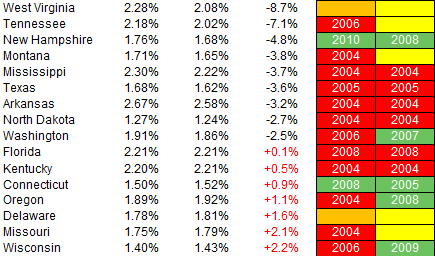Divorce and Fundamentalists
GMU economist Bryan Caplan, on a whim following a luncheon conversation with his colleague Alex Tabarrok, decided to run a little statistical analysis.
I constructed a dummy variable indicating whether a person is now, or ever was, divorced. I then regressed this on the GSS’s 3-point Biblical literalism scale. With no control variables, there is no visible connection between the two. Controlling for church attendance, Biblical literalists actually look more likely to divorce. (Church attendance works as expected – more church, less divorce). Controlling for education (and any other demographics you might care to use), the effect of Biblical literalism is statistically insignificant, but still has the wrong sign (i.e., Biblical literalists are a tiny bit more likely to divorce).
The fun doesn’t end there!
Commenters immediately pounce noting the lack of methodological rigor in his analysis, including failure to control for the never-married, age of marriage, comparative orgasm rate (!), the dates of divorce and conversion to said fundamentalism, and the operationalization of the variables themselves.
As Ezra Klein says, “Gotta love economists.”





What’s the correlation, I wonder, between divorced Christians and opposition to legalized homosexuality?
That’s always been a puzzler for me.
I know I’m a dinosaur, but back in the day when I said to my stat prof —“the variable is not significant but has the right sign†he asked me what sign zero had?